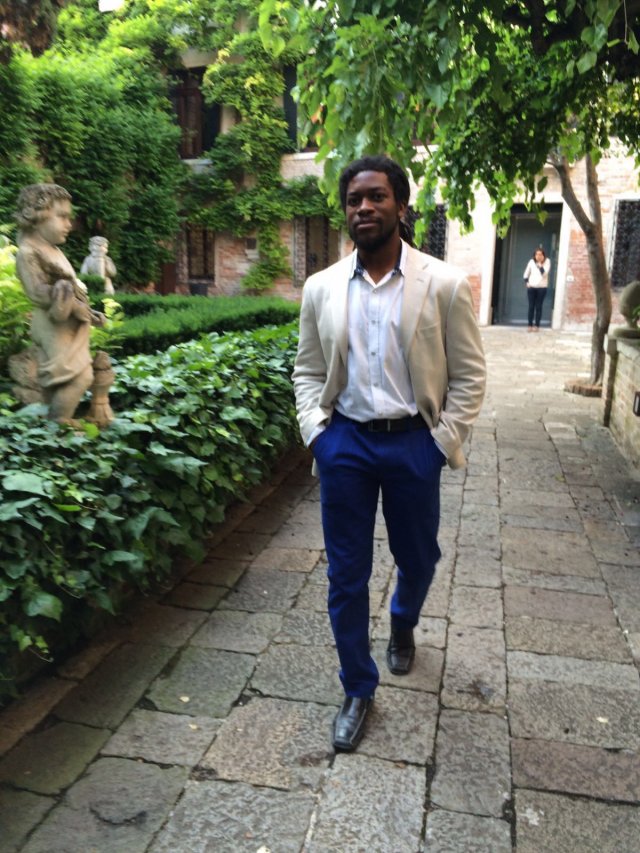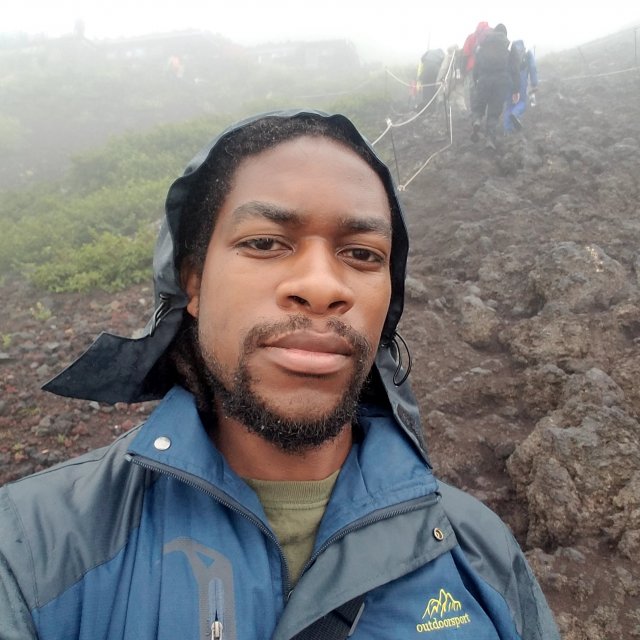Meet EPA Computational Biologist Cavin Ward-Caviness, Ph.D.

EPA computational biologist Cavin Ward-Caviness helps determine which populations are most susceptible to air pollution. His research focuses on understanding the impact of environmental or neighborhood factors, such as living in a neighborhood with lower socioeconomic factors, on health, and the biological pathways that link exposures and health.
When did you first know that you wanted to be a scientist?
I knew that I wanted to be a scientist when I was a sophomore in high school. Early on I thought I was going to do computer programming and build the next Windows and be the next Bill Gates or Steve Jobs.
Tell us about your scientific/educational background.
I did my undergraduate studies in New Orleans at Tulane University. Initially, I thought I was going to be biomedical engineer, but I got more interested in mathematics and public health. Then I went to Duke University to get my Ph.D. in computational biology and quickly fell into looking at gene-environment interactions and trying to understand which genes may play a role in determining a person's sensitivity to air pollution exposures.
How does your science matter?
An individual’s health risk is a combination of environmental exposures and underlying risk factors unique to that individual. Through our research, we are identifying people who have increased sensitivity to air pollution exposure and thus might need a more focused response or messaging to protect them from different environmental risks. My job is to find those at-risk individuals, determine what makes them more susceptible, and then hopefully find intervention techniques that we can use to reduce their environmental health risks.
What do you like most about your research?
I like that my research is applicable to public health. There is some research where you finish, you sit back, and you think that maybe in 50 years someone will figure out a way to use this work or maybe in 20 years this will get implemented into clinical medicine. But for me, it’s very easy to see how my research translates into improving public health.
If you could have dinner with any scientist, past or present, who would it be? What would you ask him or her?
Neil deGrasse Tyson would be high up on the list. He is a wine lover, so I would certainly ask him about some great wine selections, as well as how he approaches scientific outreach. I got to see him speak one time, and he has a great way of engaging people of all backgrounds, ages, and levels of scientific literacy. I think outreach is something all scientists need to do better.
Any advice for students considering a career in science?
Push your boundaries. It is sometimes a little easy for scientists to fall into a rut in their research, but I think the best scientists are the ones that are continually reinventing themselves.
You also have to learn to love the mundane parts of science. I've heard, if you want to be a writer you have to learn to love sentences. If you want to be a painter, you have to learn to love paint. If you want to be a scientist, you have to learn to love cleaning and reanalyzing the same dataset until you get it exactly right.

What do you think the coolest scientific discovery was and why?
One of the coolest discoveries is the fact that we are all—every single one of us--- the living remnants of stars, as is the world around us. I think that is just an incredible thing that connects us to each, to the world, and the wider cosmos. Everyone and everything on Earth are the remnants of countless stars that went supernova and produced the elements that compose us and the world around us. One day as humans move beyond the earth, the sun will explode and make its contributions to other civilizations. There is this continual cycle between the universe, the environment, and us, and that’s a very powerful scientific discovery.
Is there a project or effort that you are most proud of at the EPA?
I am the leader of the Environmental Protection Agency Clinical and Archived Records Research for Environmental Studies (EPA CARES). This is a collaborative effort between the EPA and the Carolina Data Warehouse for Health at the University of North Carolina, that allows researchers to use electronic health records to study environmental exposures in vulnerable patient populations. EPA CARES was started in 2017 and has already contributed to insights into the effects of air pollution on heart failure patients and heart attach survivors. We are continually expanding and refining this resource to be able to investigate a wide range of environmental health effects like social determinants of health and water contamination, as well as to bring in more hospital systems. I believe EPA CARES will be an excellent window into environmental health effects for understudied patient populations for years to come.
Describe the coolest day you’ve ever had at work.
In general, the coolest days for me are whenever I get contacted by student, researcher, or news organization saying they came across some of my work and want to talk about it or collaborate. This is always just a great reminder that science touches real people in real time and that even if some of the public health benefits of my work are not realized for years or decades, there can still be a tangible impact in the present by inspiring, educating, or just connecting people with an interest in environmental health.
Describe any steps you take in your daily life to protect the environment.
I recycle and compost. Those are very easy and immediate steps that we can all take to protect the environment. I also try to reduce my use of disposable plates and cups. Even if I’m ordering takeout. I will try and decline the disposable forks and just use the ones I have at home. I think that’s a very easy and effective way to reduce our overall consumption of disposable things that end up in landfills, in oceans, and our waterways.
Why does one person get sick and others do not?
Why does one person get sick from exposure to a chemical in their environment while others do not? Dr. Ward-Caviness is among the first to combine an expertise in cutting-edge microbiology with more traditional toxicology techniques to reduce chronic diseases. He is unlocking the underlying role that genetics play in the development of adverse health impacts from environmental exposures, helping to identify the most vulnerable populations. Dr. Ward-Caviness explains his work in our video Why does someone get sick from exposure to a chemical in their environment?
Editor's Note: The opinions expressed herein are those of the researcher alone. EPA does not endorse the opinions or positions expressed.
